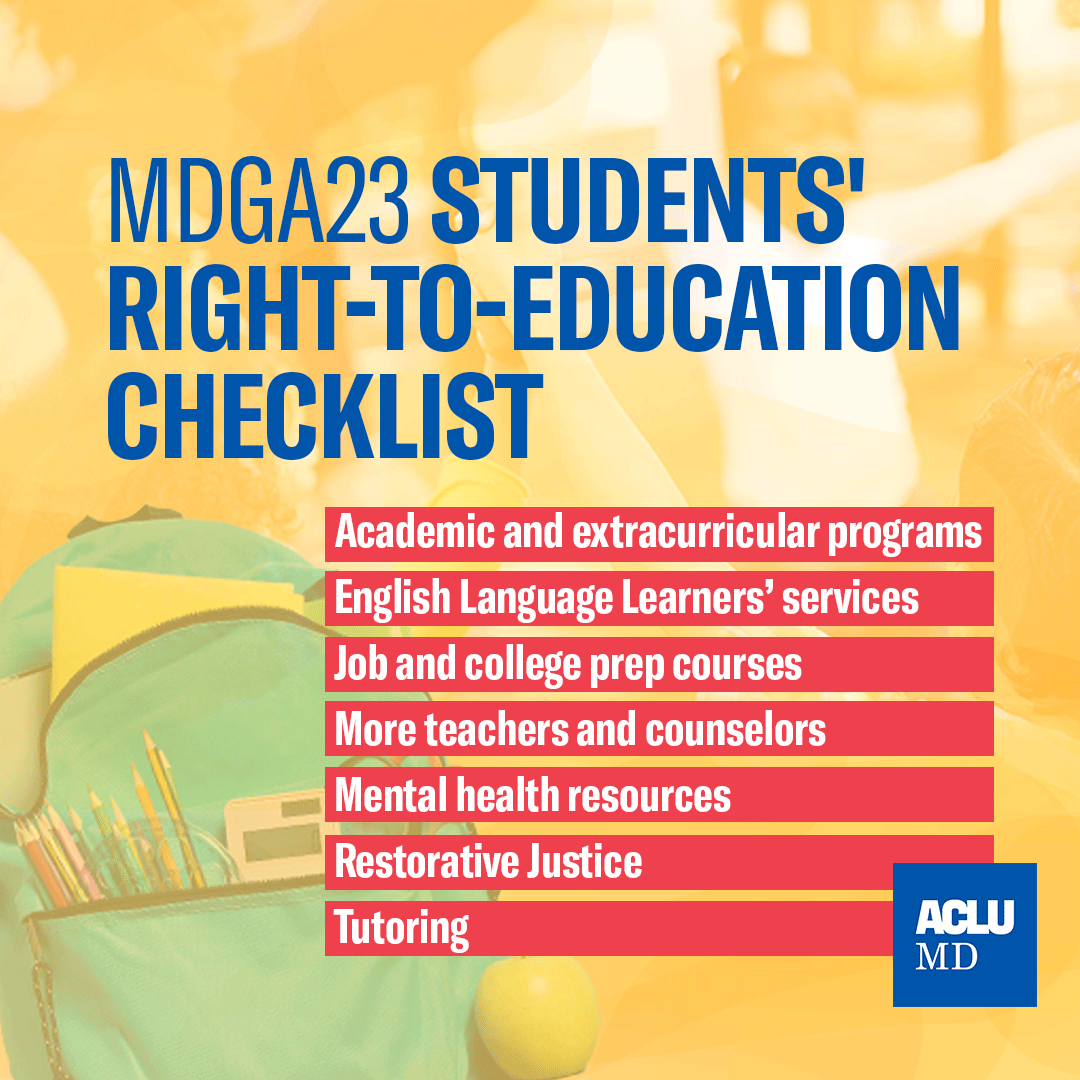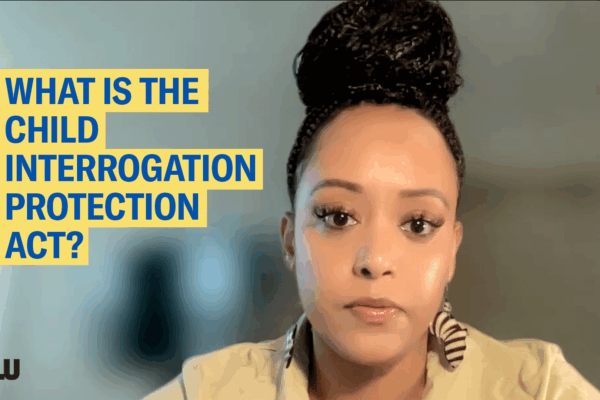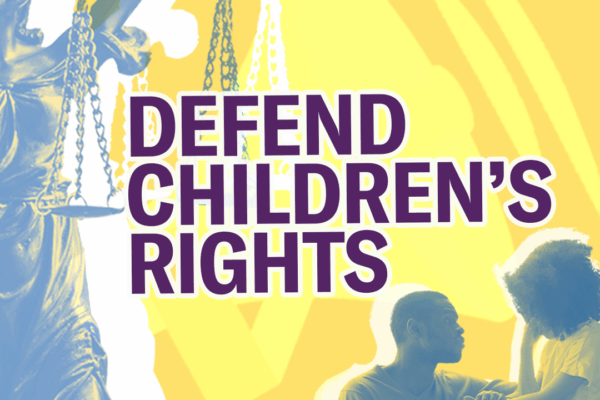As children around Maryland return to schools after winter break, it is our duty to ensure they have everything they need to succeed academically. The State of Maryland’s constitution guarantees that right, after all!
As children around Maryland return to schools after winter break, it is our duty to ensure they have everything they need to succeed academically. The State of Maryland’s constitution guarantees that right, after all!
Not only is the ACLU of Maryland in the courts advocating for children’s right to an adequate education, but we will also be in Annapolis championing children’s rights this legislative session. We asked a few Marylanders what their top needs were for Maryland students. Below is a short checklist of what our children need.

IMAGE TEXT:
MDGA23 Students' Right-to-Education Checklist: Academic and extracurricular programs; English Language Learners' services; job and college prep courses; more teachers and counselors; mental health resources; restorative justice, and tutoring.
Janna Parker was one of the community members we spoke to about children’s academic needs. She is a long-time education advocate in Prince George’s County. Janna’s most pressing concerns were about the lack of necessary after school resources. Janna said: “We have to ensure after school programs are well funded. In my experience, sports related programs for girls are not as well funded as boys’ programs.”
Janna also emphasized the importance of other programs such as the arts. “Arts programs should be active and flourishing in every school,” she said. “Our children need more resources to guarantee them consistent art programs.” Finally, Janna drew attention to a vital and often forgotten resource that is needed in our schools. “Tutoring programs need to be given consistently as well, especially for students in low-income areas,” she said.
Ongisa McKenzie also agreed with Janna Parker that tutoring services were lacking in Maryland schools. “We don’t have enough services like tutoring in our schools,” she said. “Some families who are living in poverty, have children with special needs, or are English Language Learners [and] need a little more services, which should be provided.”
Ongisa is the leader of Southern Marylanders for Racial Equality and a parent of a student in Maryland public schools. Programs for students were on the top of many parents’ list for needs their children have. For Ongisa specifically, job and college prep programs are essential for preparing our children for their lives after high school. “Prepping our students for college is important,” she said. “We need job and career readiness in our schools.”
Another resource that schools should start implementing is restorative programs instead of punitive punishments that do nothing to prevent transgressions and support all students, including students who are struggling. “We need reparative solutions in our schools,” Ongisa said. “School police have increased in our schools, but crimes haven’t decreased. We need to offer our children solutions, mental health resources, and adults to reach out to.”
Alicia Freeman, an English for Speakers of Other Languages (ESOL) teacher and the Teacher of the Year in Baltimore County this past year, agreed that children need more supportive adults in school, but particularly, children need teachers who understand different cultures. “Maryland children need access to teachers across school systems who are prepared, ready, and willing to work with multilingual students,” Alicia said. “Having classroom teachers skilled in strategies around communicating with and understanding parents from different cultural backgrounds will further help to support their children in the classroom.”
Further, Alicia believes that, “there needs to be access to ELL services at Maryland schools.” She said, “English Language Learners deserve access to their educations in the same ways non-ELL do.” Not only do children need these resources, but the families do, too. Alicia said: “There needs to be access to school and district communication in the students’ own languages. Multilingual families deserve to receive information from schools and school districts in a language they can understand. Schools need staff that are multilingual, multifaceted, containing a multitude of experiences, backgrounds, educational levels, immigration experiences, birthplaces, etc. Maryland students bring a wealth of knowledge to our classrooms. They come to the table with incredible assets, and it's time our schools started to recognize these assets for what they are.”
To succeed, students in public school need a full range of academic programs, supports, and resources. And a key way that Maryland can fulfill their state constitutional right to a “thorough and efficient” public education, is by fully funding our children’s education, particularly for Black and Brown children. We are currently in court demanding that Maryland fund the education of Black and Brown children in Baltimore City whose education has been neglected by the state for decades. This is unacceptable.
While the Blueprint for Maryland’s Future starts to address this underfunding, we must make sure that this promise to our children is targeted to those who need resources most urgently and then fully fulfilled. State funding for school construction also needs to be maintained at the current high level, so that deteriorating schools can be rebuilt and modernized. In 2023, the ACLU of Maryland will work alongside partners through legislative efforts to ensure the funds our children need, and which are required by law, are given to schools. Our children deserve these measures and resources, so their education rights can be realized.
Outside of the legislative session, the ACLU, Antiracism for Maryland Schools (ARMS), and the Community Workgroup on English Language Learners (WELL) will continue working to ensure that public schools embrace multicultural academic programming and culturally responsive approaches to delivering teaching and learning. An excellent education must center and affirm the lives, racial identities, and cultures of Black and Brown children.
Share this blog and let us know what your checklist looks like. Then, sign up for our email list to take action this legislative session!





